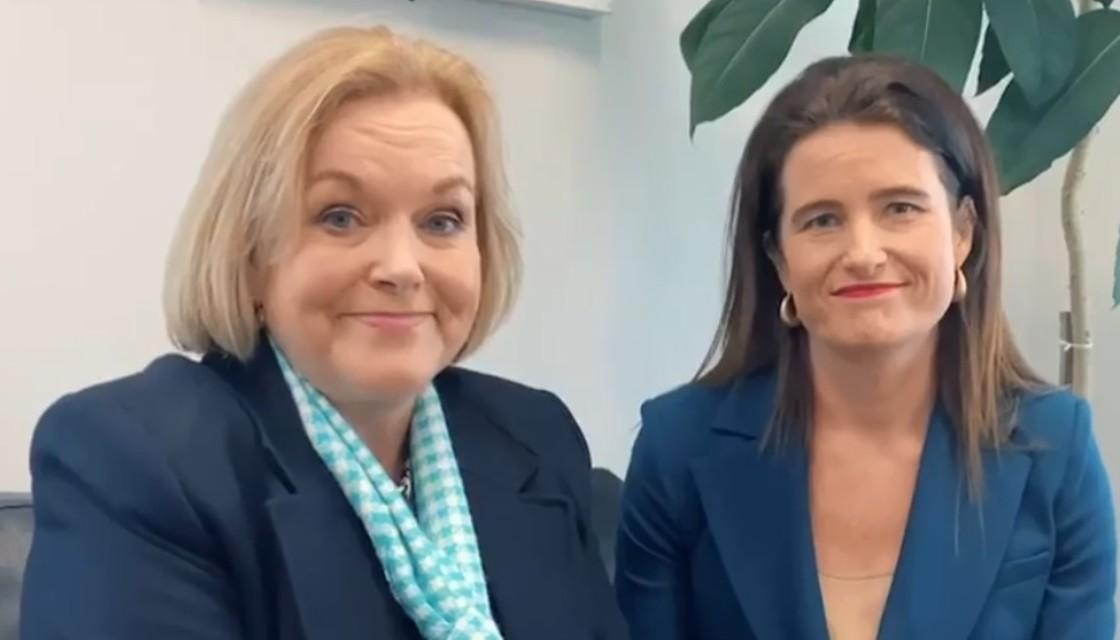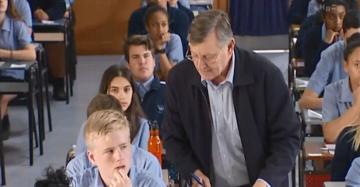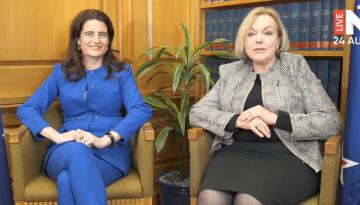
The National Party is committing $1.9 billion over four years to boost learning support in schools, and plans to scrap the Government's decision to take over school zoning.
The commitment includes a $480 million boost in learning support, and $150 million over four years to fund about six million additional hours of teacher aide support in classrooms, equivalent to around 1500 new teacher aides.
National also wants to ensure all children have the opportunity to learn at least one second language at primary and intermediate school, with a funding boost of $40 million per year to deliver this.
National plans to give back schools the power to create their own zoning areas after the Government took it away under a new system to replace the 30-year-old self-governing regime, in an attempt to achieve more equal outcomes for all students.
Education Minister Chris Hipkins said the system allowed schools to "manipulate the zone based on areas they may wish to take students from; for example, including high socio-economic neighbourhoods while excluding closer, yet more disadvantaged, neighbourhoods".
National leader Judith Collins wants to reverse the Government's move by creating new schools with an additional $2.8 billion, part of $4.8 billion committed over the next decade for education infrastructure.
National predicts about 60 new schools will be needed by 2030 on recent projections of an extra 100,000 students within a decade. Half of them need to be built in Auckland, with the other half built in high-growth areas or areas that are currently at or over capacity.
Collins has already announced it wants to establish 25 new partnership schools by 2023, including some focussed on specific learners such as Māori and Pacifica, specialist areas such as education for children with additional learning needs, or particular subject areas.
The Government scrapped the partnership school model seven years after its introduction by the National Party, over concerns it created inequality and diverted from the need to lift the whole public education system.
ACT leader David Seymour, the architect behind the previous National-led Government's partnership school programme, described the move to end the model as "a massacre of opportunity for kids".
Seymour said on Monday, "We're thrilled National has committed to bringing ACT's charter schools back. It's challenging to come up with policies for two political parties, but it's a burden ACT can bear."
National wants to identify which schools are having the greatest positive impact on student achievement by tasking education officials with seeing how this can be replicated in other schools.
"National will increase spending in education every year including increasing operational funding for schools and early childhood education services," Collins promised on Monday, if National is elected to power in October.
"We want all children to go on to achieve great things. With the right education we can overcome the challenges some children face purely because of the situation they were born into."
National is also committing to smaller class sizes by reducing student-to-teacher ratios in primary schools, and abolishing the annual registration fee that teachers are currently required to pay to the Teaching Council.
The Government announced last week that Auckland students will be able to earn more credits and pass with a lower threshold due to the resurgence of COVID-19, which saw the city put under alert level 3 lockdown.
The Government scrapped the $76.70 NCEA fee that families pay every year as part of its 2019 Wellbeing Budget, which was supported by National.



